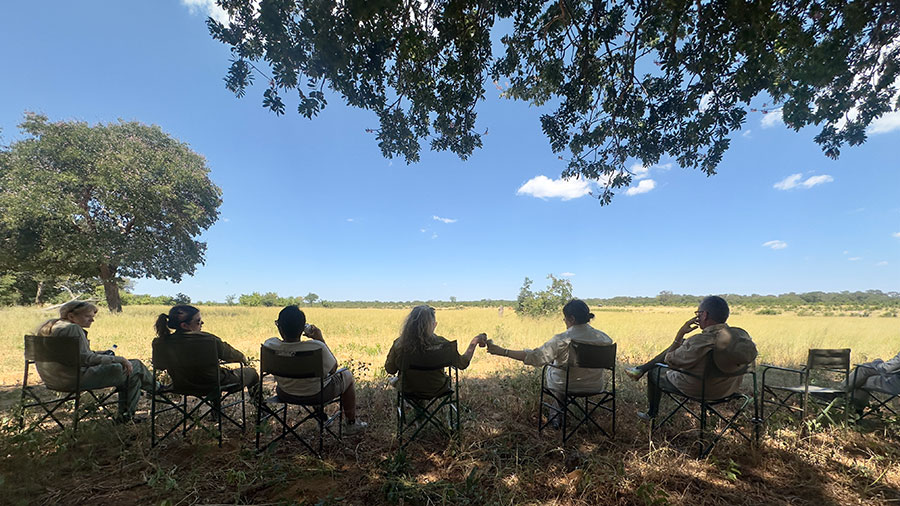Embarking on a safari to Hwange National Park is akin to stepping into a realm where the raw essence of African wilderness unfolds before your eyes. Nestled in the heart of Zimbabwe, this expansive sanctuary teems with a rich biodiversity and cultural heritage, offering a once-in-a-lifetime journey for nature enthusiasts and adventurers alike.
As it happens, I learned wildlife photography in Hwange while traveling with my father. Over the course of several trips with him, while camping in the wilderness and sitting at waterholes from before sunrise to after sunset, I learned how access to water dominates animal behavior and is the best place to sit yourself for wildlife viewing and photography. Hwange is unique in that most of the waterholes are manmade and have pumps to ensure water year-round. My father and I would park our vehicle at one of these pans, sit on the ground, and photograph the animals as they came for water. In the morning, we would hope for predators, during the day we’d see mostly hoof stock and warthogs, and in the afternoon, we were almost always rewarded with continuous herds of elephants—we would be surrounded by up to 300 elephants at a time! —and the chance to photograph them from as close as 20 feet. It is hard to find a better wildlife experience!
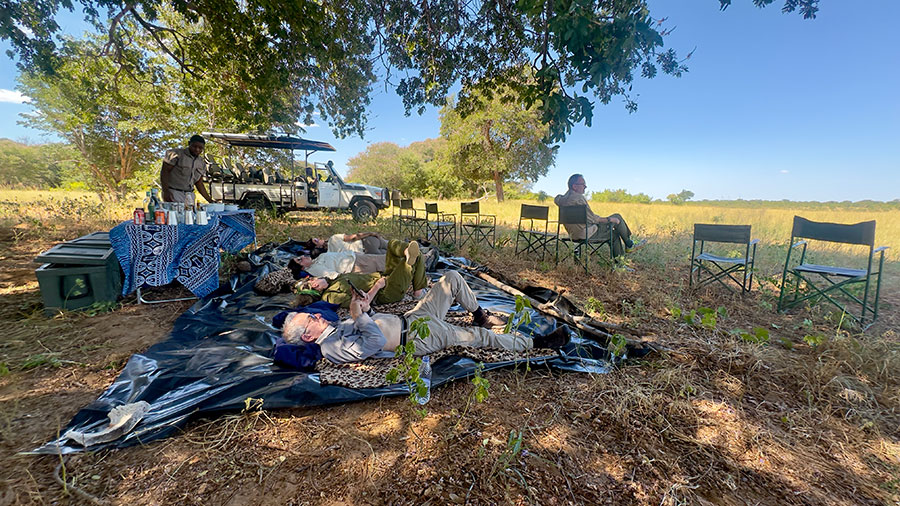
Today, as a safari agent and guide, my goal for our travelers is to have similar experiences, but in much nicer accommodations than how we camped! There are heaps of great wildlife destinations in Africa, but Hwange National Park offers something unique, and my recent safaris there—one with my father on his last safari to Africa and one with the Little Rock Zoo—support this.
These most recent safaris were filled with awe-inspiring encounters. One such moment was the sight of a female lion lying in a tree. With her radio collar—a reality for wildlife in the efforts to conserve them—she surveyed the plain with an air of quiet confidence, looking for her next meal. On a separate occasion, I had the privilege of capturing the graceful elegance of a resident pair of cheetah brothers through my lens. Watching their behaviors, six months apart, gave me the opportunity to learn more about this magnificent species.
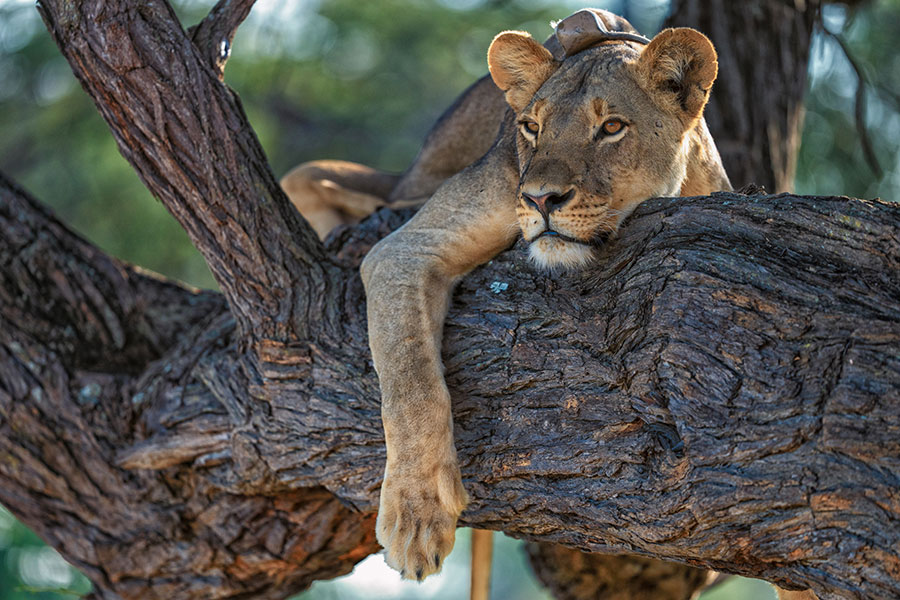
The most exhilarating moments came when I was able to view elephants from mere feet away, their massive forms casting a shadow over me as they quenched their thirst at different watering holes. Like when I was first learning wildlife photography, the sheer proximity of these gentle giants left me spellbound, offering a rare glimpse into their intimate world, and forging a deep connection with the wonders of nature.
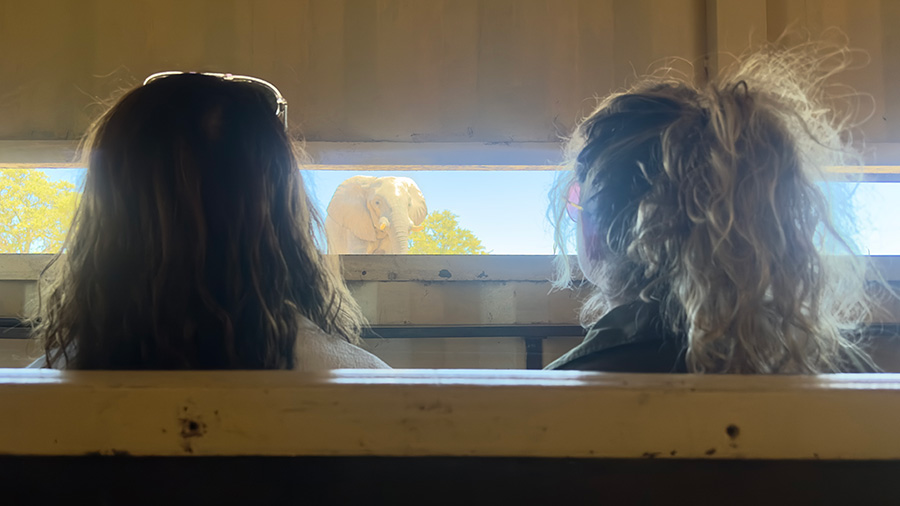
Yet, amidst the splendor of Hwange’s wildlife, there lies a deeper story of conservation and community empowerment. My journeys took me on visits to a Community Rhino Conservation project, where our lodging partners have translocated two white rhinos into land owned by a local community and are in the process of bringing two more this September with plans for more in the future. Dedicated individuals are working tirelessly with the community to protect these endangered creatures, while creating as source of income for surrounding villages and lowering human wildlife conflict. Their unwavering commitment to preserving Zimbabwe’s natural heritage serves as a beacon of hope in the face of adversity, highlighting the pivotal role that ecotourism plays in sustaining both wildlife and local communities.
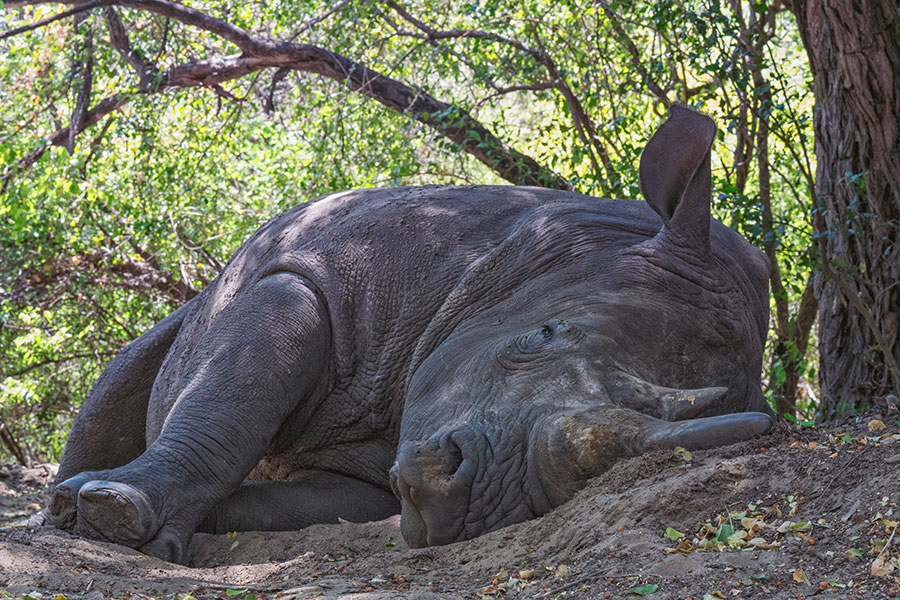
Our group was also warmly welcomed into one of the local villages, where we had the opportunity to immerse ourselves in Zimbabwean culture—from turning our safari vehicle into a ‘school bus’ and visiting a school bustling with eager young minds to witnessing the invaluable work of the community clinic, we all gained a newfound appreciation for the resilience and spirit of the people who call this land home. Through conversations with locals, we learned firsthand how ecotourism initiatives not only provide vital economic opportunities but also foster a sense of pride and stewardship towards the natural world.
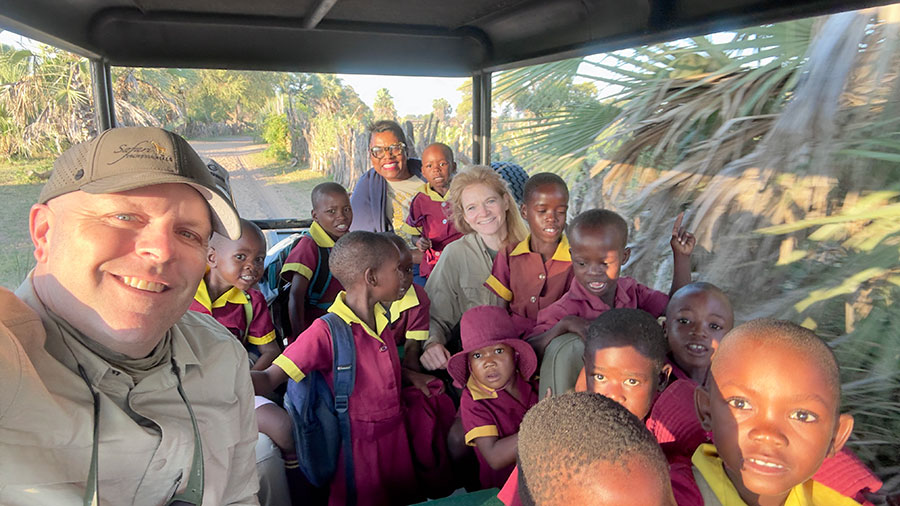
These most recent safaris to Hwange National Park cemented the idea that it is indeed one of Africa’s top destinations for a combination of unmatched wildlife experiences, conservation, and community engagement. If you are looking for a deeper experience from your safari, then I highly recommend you consider Hwange as your next destination.
